Publications
Articles, publications, books, tools and multimedia features from the U.S. Institute of Peace provide the latest news, analysis, research findings, practitioner guides and reports, all related to the conflict zones and issues that are at the center of the Institute’s work to prevent and reduce violent conflict.
American Foreign Policy and Islamic Renewal (Arabic Edition)
Summary The United States still lacks an integrated and sustainable strategy to confront religious extremism in the Muslim world. Policymakers have failed to recognize that the challenge is not only a conflict with the West but also involves ideological shifts within the Muslim world. These shifts have precipitated a major battle for the future of Islam as a faith and a civilization.
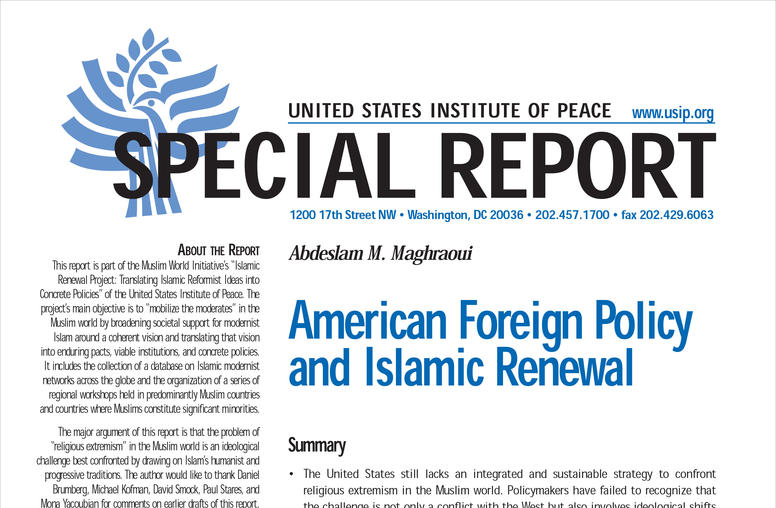
American Foreign Policy and Islamic Renewal
The single most important initiative the United States can take to combat Islamist extremism is to support "Islamic renewal," a diffuse but growing social, political, and intellectual movement whose goal is profound reform of Muslim societies and polities.
Responding to Crisis in Nigeria
Nigeria currently faces a three-pronged crisis involving Muslim-Christian relations, the Niger Delta region, and presidential term limits. USIP brought together three professors to comment on the different aspects of the crises in Nigeria—this USIPeace Briefing is the convergence of their analyses.
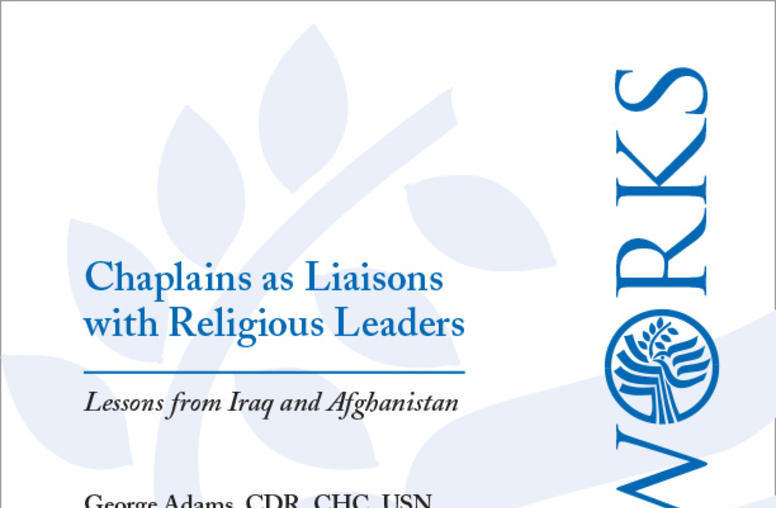
Chaplains as Liaisons with Religious Leaders: Lessons from Iraq and Afghanistan
As this study demonstrates, military chaplains, as clergy and officers, occupy a unique space that blends a secular status and a religious one, making them well suited to serve as intermediaries between military and religious leaders in areas of conflict and postconflict stabilization.
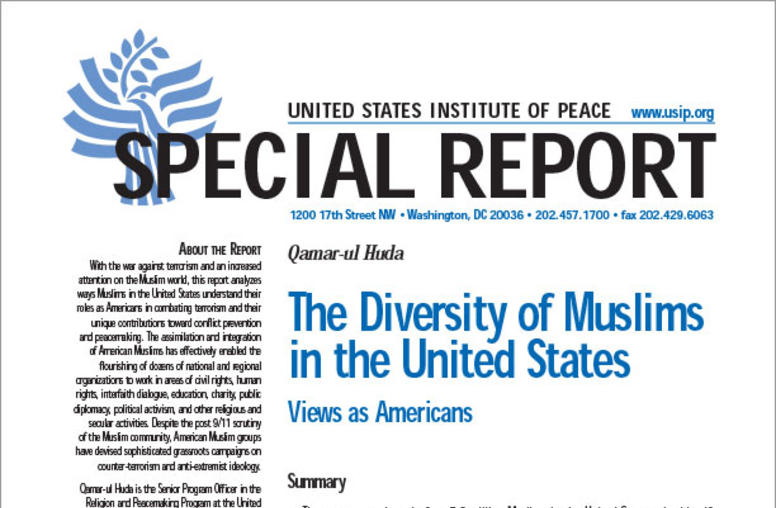
The Diversity of Muslims in the United States: Views as Americans
With the war against terrorism and an increased attention on the Muslim world, this report analyzes ways Muslims in the United States understand their roles as Americans in combating terrorism and their unique contributions toward conflict prevention and peacemaking.
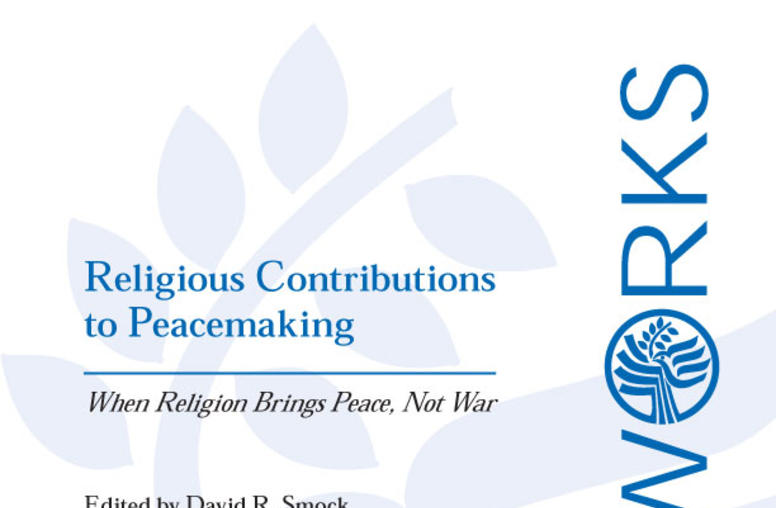
Religious Contributions to Peacemaking: When Religion Brings Peace, Not War
In the popular mind, to discuss religion in the context of international affairs automatically raises the specter of religious-based conflict. The many other dimensions and impacts of religion tend to be downplayed or even neglected entirely. The contribution that religion can make to peacemaking--as the flip side of religious conflict--is only beginning to be explored and explicated.
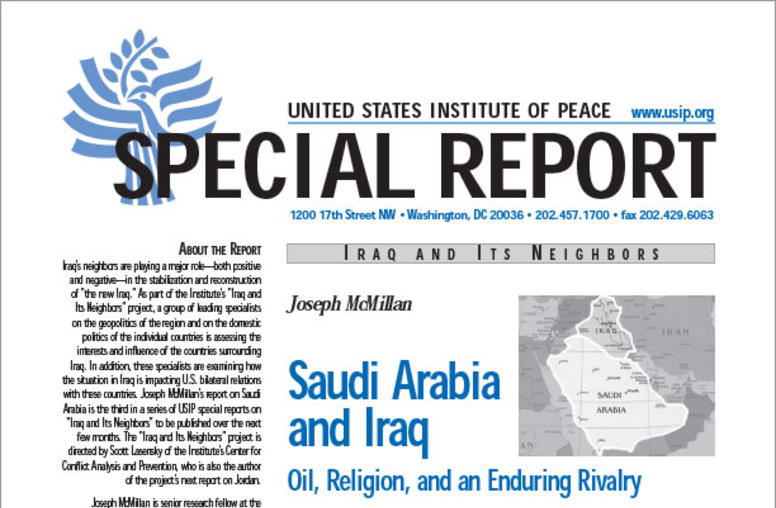
Saudi Arabia and Iraq: Oil, Religion, and an Enduring Rivalry
This Special Report is third in a series on "Iraq and Its Neighbors," examining the U.S. relationship with Saudi Arabia and Riyadh's policies toward Baghdad.
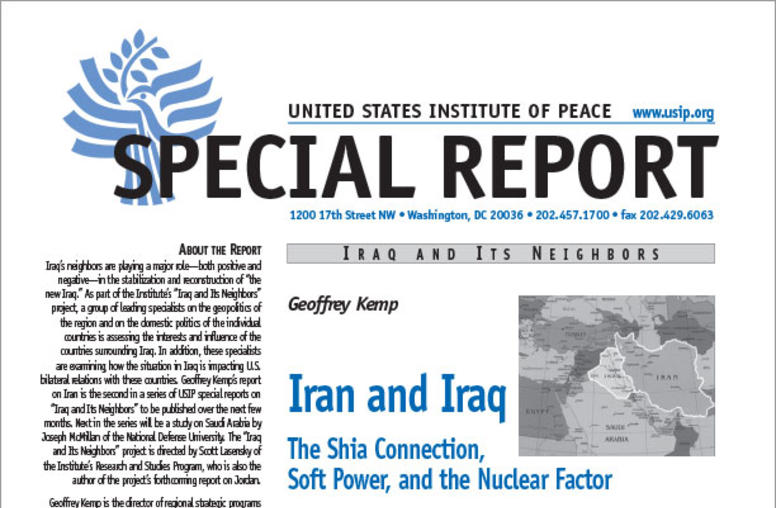
Iran and Iraq: The Shia Connection, Soft Power, and the Nuclear Factor
Summary Predominantly Shiite Iran emerges from the aftermath of Saddam Hussein's fall with considerable power and influence in Iraq as Iraqis themselves struggle to acquire a semblance of unity and forge a new political order acceptable to Iraq's three key groups: Shia, Kurds, and Sunnis. Iran's leaders meet with Iraq's most influential personality, Grand Ayatollah Ali al-Sistani; American diplomats do not meet with Sistani. Iraq's new elected leaders make visits to Tehran and negotia...
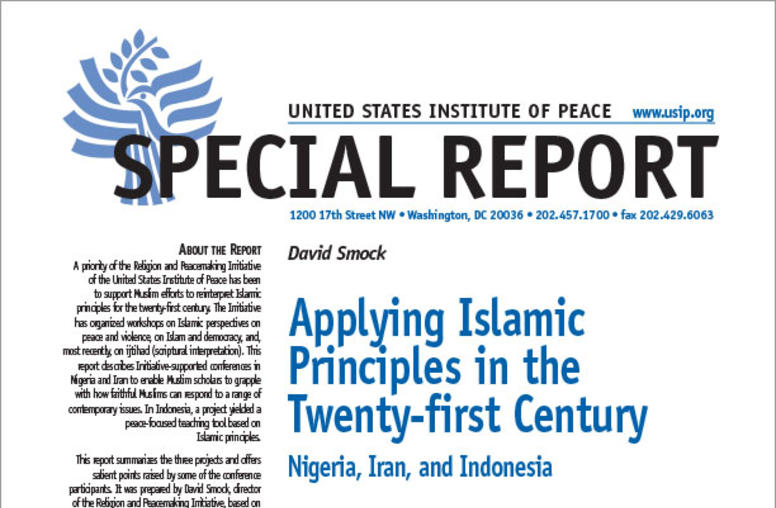
Applying Islamic Principles in the Twenty-first Century: Nigeria, Iran, and Indonesia
This report summarizes the three projects and offers salient points raised by some of the conference participants. It was prepared by David Smock, director of the Religion and Peacemaking program, based on papers by Radwan Masmudi, Asna Husin, and Abdulaziz Sachedina.